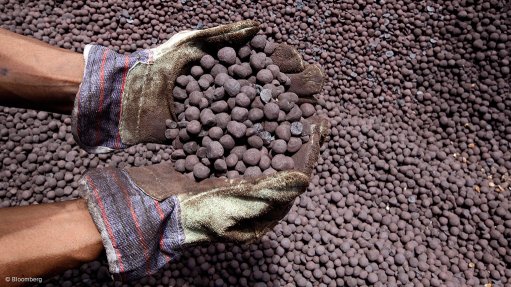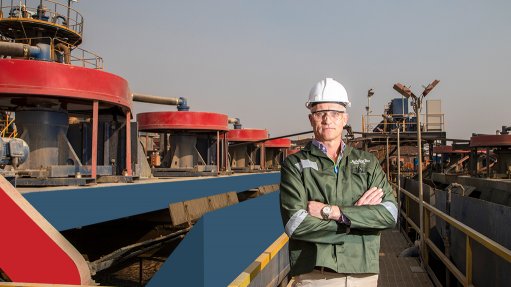Mining industry needs to be more consultative, transparent
Mining companies needed to be more open and transparent with communities surrounding their mine operations, Bench Marks Foundation executive director John Capel said in his presentation during a panel discussion, the topic of which was Building Community Trust, at the 2015 Investing in African Mining Indaba.
He said the strained relationship between community members and mining operations could mostly be attributed to “the mining industry’s mindset that is focused on short-term profit maximisation and that does not recognise community interest beyond industrial mining”.
Capel outlined ways in which trust could be created between the two stakeholders.
He said that mining companies should support independent funds to empower communities, as well as support independent grievance mechanisms as recourse to justice.
Further, title deeds should remain in the name of the community, he stated, adding that a proper list of community interest groups should be compiled to foster proper engagement. Mining companies should also accept the right of a community to refuse to have their land used for mining.
“Long-term interests of the community and other economic issues should take centre stage . . . If a mine is going to be destructive to local economic groups, then it should not be considered at all,” he elaborated.
About AMI
The Bench Marks Foundation and the Economic Justice Network in 2010 founded the Alternative Mining Indaba (AMI), which is held yearly in Cape Town, concurrently with the Investing in African Mining Indaba.
The AMI was founded because the organisations believed that “the exorbitant fees [for attending and participating in the event] and the omission of certain topics from the Mining Indaba’s programme mean that those who have vital input to contribute, such as civil society and community members, are excluded from discussions that ultimately affect their lives and livelihood”, Capel told Mining Weekly after the presentation.
He explained that this year’s AMI conducted a peaceful protest march on February 9 to the Cape Town International Convention Centre, where the Investing in African Mining Indaba was held. Supporters displayed banners that expressed their dissatisfaction with the indaba on February 11 while they were in a bus that was being driven around the convention centre.
“Throughout the years, and especially since Marikana, [where 37 mineworkers were killed during an unprotected wage strike in 2012], the Bench Marks Foundation has been very clear that enough is enough and that change is required now.
“The only way in which the Mining Indaba can really be effective in addressing the true issues surrounding the sector and changing them is if industry leaders stop talking among themselves and start talking to all stakeholders,” Capel added.
This year’s AMI theme was ‘Making natural resources work for the people’ and the conference included topics on inclusive, sustainable and resilient development, as well as domestic resource mobilisation, transparency and accountability.
“Coming out of the AMI – whose keynote address was delivered by human rights activist Graça Machel and who later addressed the Mining Indaba – our hope is that our voices will finally be heard and that next year’s Mining Indaba will include everyone involved in and affected by mining,” highlighted Capel.
As attendance at the AMI was free, Capel added that the AMI relied on donor funding from many of the civil society organisations that were part of the event. “Thirty-seven countries were represented at the AMI, which poses a challenge for the official indaba, especially in promoting an alternative vision and . . . what mines should pay attention to,” he noted.
Capel concluded that the event provided an international platform for all interested stakeholders to share experiences and mobilise and motivate mining communities to strengthen their work on advocacy for environment- and human-rights-conscious natural-resource governance.
Comments
Press Office
Announcements
What's On
Subscribe to improve your user experience...
Option 1 (equivalent of R125 a month):
Receive a weekly copy of Creamer Media's Engineering News & Mining Weekly magazine
(print copy for those in South Africa and e-magazine for those outside of South Africa)
Receive daily email newsletters
Access to full search results
Access archive of magazine back copies
Access to Projects in Progress
Access to ONE Research Report of your choice in PDF format
Option 2 (equivalent of R375 a month):
All benefits from Option 1
PLUS
Access to Creamer Media's Research Channel Africa for ALL Research Reports, in PDF format, on various industrial and mining sectors
including Electricity; Water; Energy Transition; Hydrogen; Roads, Rail and Ports; Coal; Gold; Platinum; Battery Metals; etc.
Already a subscriber?
Forgotten your password?
Receive weekly copy of Creamer Media's Engineering News & Mining Weekly magazine (print copy for those in South Africa and e-magazine for those outside of South Africa)
➕
Recieve daily email newsletters
➕
Access to full search results
➕
Access archive of magazine back copies
➕
Access to Projects in Progress
➕
Access to ONE Research Report of your choice in PDF format
RESEARCH CHANNEL AFRICA
R4500 (equivalent of R375 a month)
SUBSCRIBEAll benefits from Option 1
➕
Access to Creamer Media's Research Channel Africa for ALL Research Reports on various industrial and mining sectors, in PDF format, including on:
Electricity
➕
Water
➕
Energy Transition
➕
Hydrogen
➕
Roads, Rail and Ports
➕
Coal
➕
Gold
➕
Platinum
➕
Battery Metals
➕
etc.
Receive all benefits from Option 1 or Option 2 delivered to numerous people at your company
➕
Multiple User names and Passwords for simultaneous log-ins
➕
Intranet integration access to all in your organisation


















